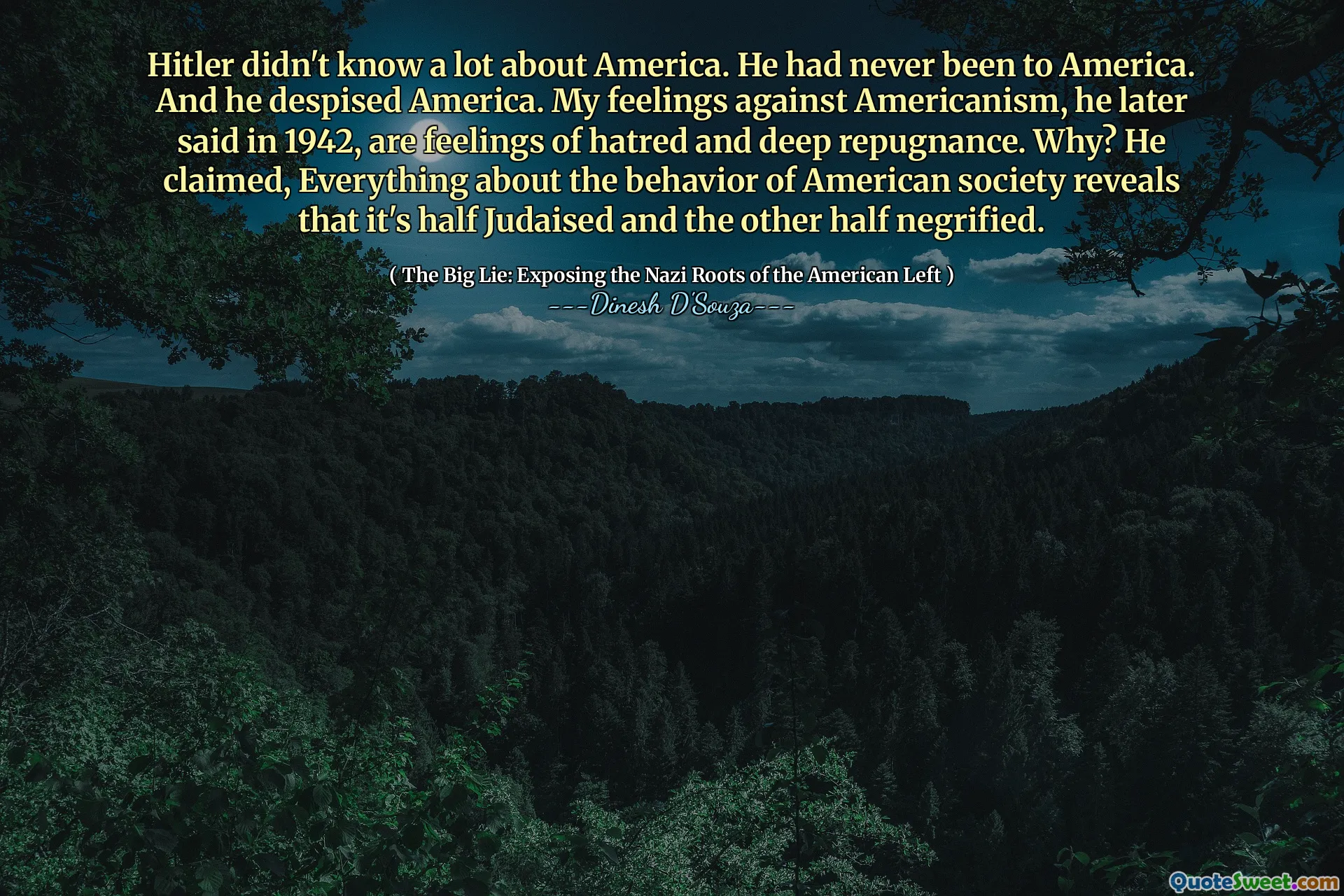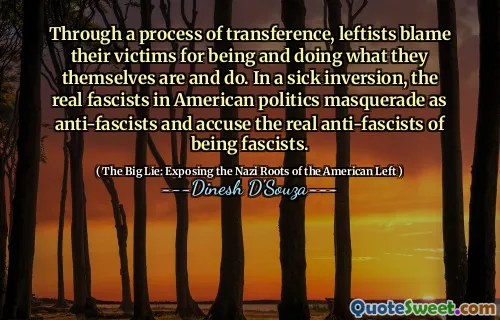
Hitler didn't know a lot about America. He had never been to America. And he despised America. My feelings against Americanism, he later said in 1942, are feelings of hatred and deep repugnance. Why? He claimed, Everything about the behavior of American society reveals that it's half Judaised and the other half negrified.
The quote underscores a significant aspect of historical prejudice and propagandistic rhetoric that has been used to skew perceptions of American society. Dinesh D'Souza's portrayal of Adolf Hitler's views reveals a perspective rooted in deep-seated bias and racialization. While Hitler's sentiments were explicitly racist and xenophobic, the invocation of terms like "Judaised" and "negrified" echoes a malicious attempt to categorize American culture in terms of racial and ethnic influences, suggesting a mongrelization that he deemed undesirable. This reflects a broader pattern of extremist ideologies that historically have dehumanized groups based on race, ethnicity, or religious identity, which leads to destructive policies and societal division. Recognizing that Hitler's knowledge of and attitude towards America were limited, it's important to contextualize these statements within his propaganda machine—an effort to malign enemy nations by amplifying stereotypes and racial fears. Moreover, this quote serves as a reminder of how rhetoric can be manipulated to serve ideological agendas, often by vilifying democratic societies as morally corrupt or racially impure. The dangerous implications of such rhetoric—used to justify atrocities and marginalization—are still relevant today, emphasizing the importance of critically analyzing inflammatory statements and understanding their origins to prevent similar distortions from shaping public opinion or policy. D'Souza’s referencing of these views in his work suggests a critical examination of leftist and progressive ideologies and their alleged roots, which invites ongoing debate about ideological influence, racial perception, and political legitimacy in contemporary discourse.







